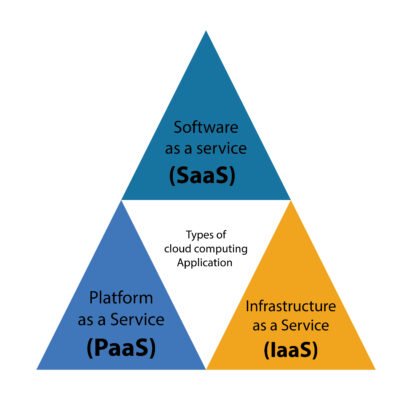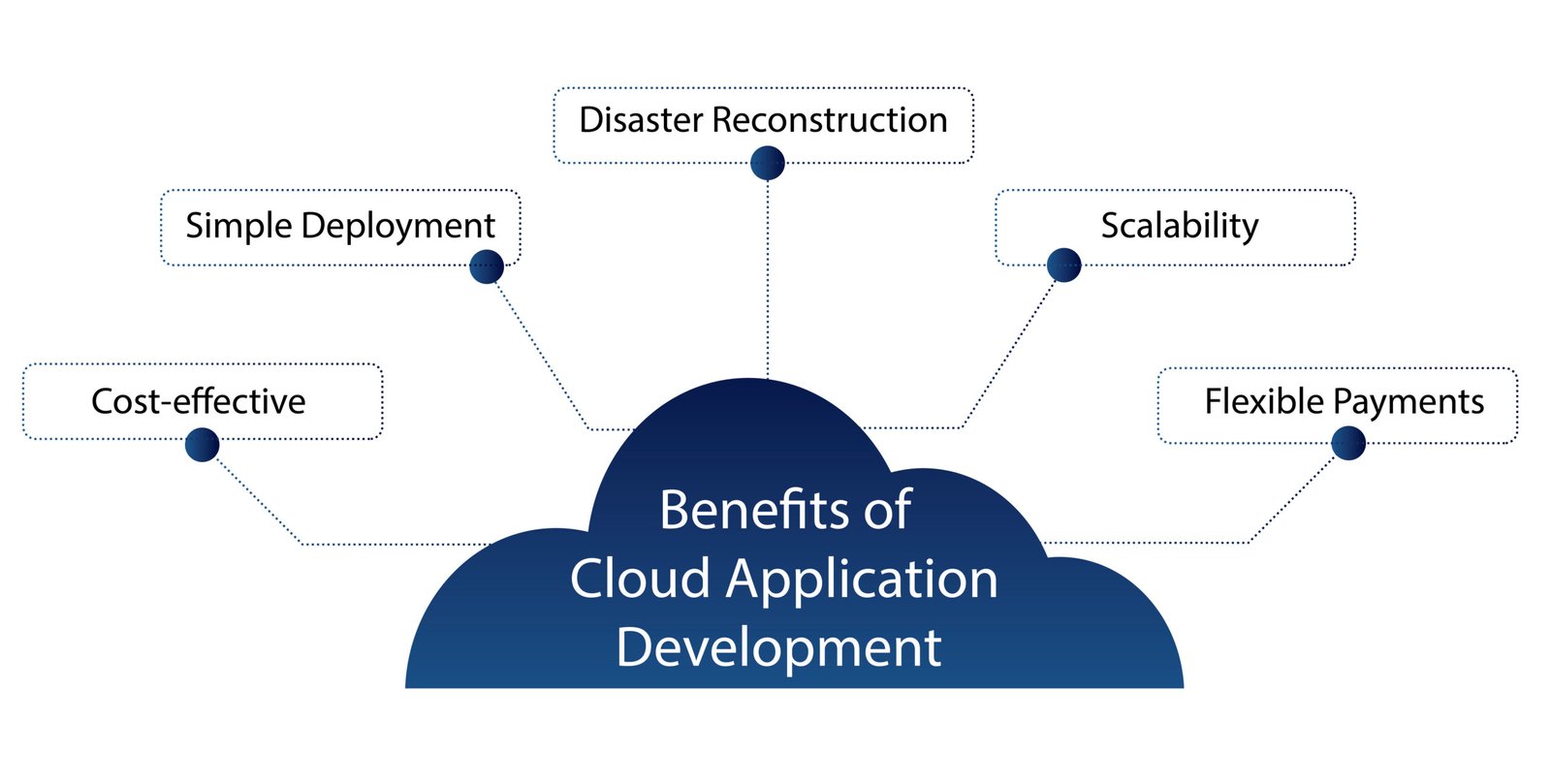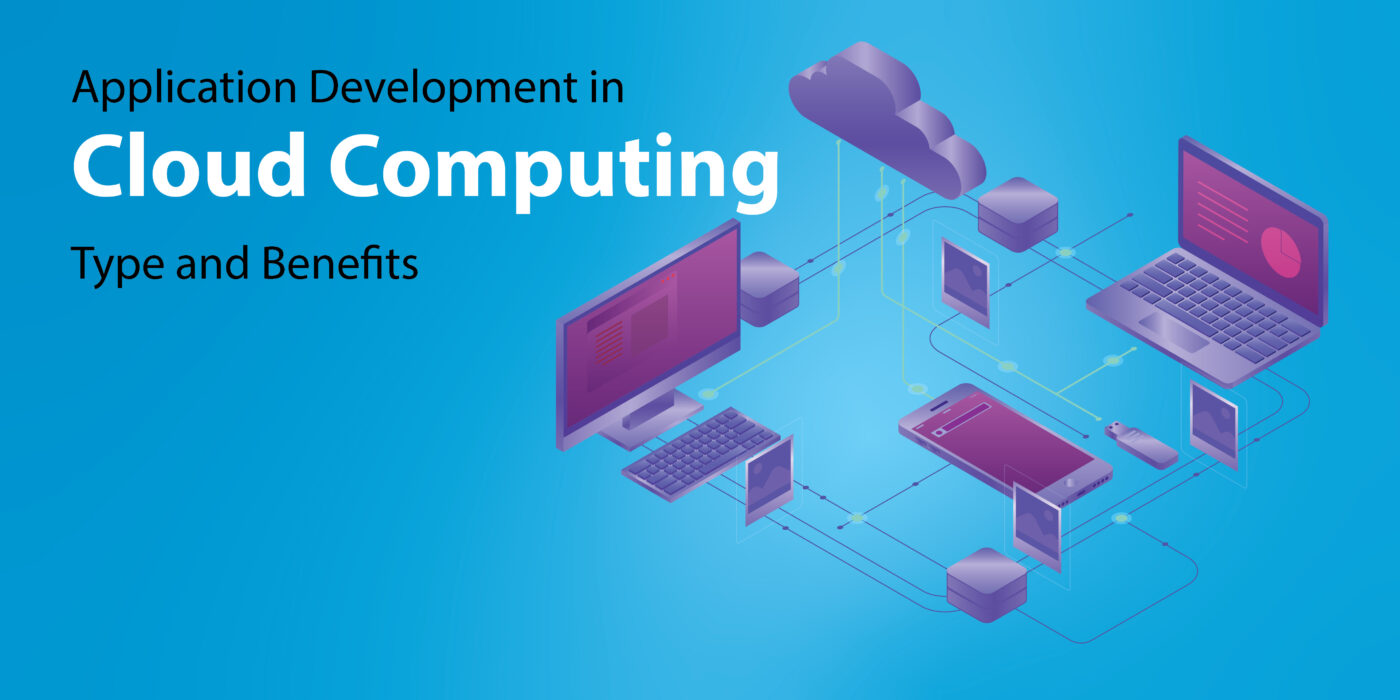Cloud computing is no longer just a trendy term. In the current digital era, it is increasingly essential for firms to remain competitive. With the growth of cloud computing services or cloud application development, there are now more opportunities than ever before for mobile app development as a result of the rise of mobile devices. Here, we will examine the future of cloud-based mobile app development.
What is Cloud Computing Application?
A Cloud computing application, also known as a cloud application or software as a service (SaaS), refers to an application that runs on remote servers and is accessed over the internet. Instead of being installed and run on a user’s local computer or device, the application, and its associated data are hosted and managed by a cloud service provider.
Cloud computing applications leverage the infrastructure and resources provided by the cloud service provider, allowing users to access the application from any device with an internet connection. Users typically interact with the application through a web browser or a specialized client application, without needing to install or maintain the software locally.
Acquiring knowledge of cloud application development
Designing, creating, deploying, and managing applications that are hosted in the cloud constitute cloud application development. In contrast to conventional application development, it calls for a different set of abilities and information. Cloud computing concepts like virtualization, containers, and microservices are important for developers to understand, as are cloud-native development frameworks like Kubernetes, Docker, and Serverless. Building scalable and robust apps employing cloud-based solutions like messaging, storage, and databases is another aspect of cloud application development.
Types of cloud computing Applications
Three general service delivery categories or types of cloud computing exist: IaaS, PaaS, and SaaS.

Infrastructure as a Service (IaaS):
IaaS companies like Amazon Web Services (AWS) offer application programming interfaces (APIs) to help users shift workloads to virtual machines (VMs). It is one of the major cloud application developments in recent times. These providers also provide a virtual server instance and storage. The virtual machine and storage are available for users to start, stop, access, and edit as needed. Users are allocated a specific amount of storage space.
Platform as a Service (PaaS):
Development tools including cloud application modernization are hosted on cloud service providers’ infrastructures in the PaaS architecture. Using gateway software, web portals, or APIs, users can access these tools online. PaaS is used to develop software in general, and many PaaS companies host the software once it has been created. Google App Engine, AWS Elastic Beanstalk, and Salesforce’s Lightning Platform are examples of popular cloud application development like PaaS products.
Software as a service (SaaS)
Software as a service is a distribution mechanism that distributes software programs online; these applications are frequently referred to as web services. Any computer or mobile device with internet connectivity can be used by users to access SaaS apps and services. Users get access to application software and databases through the SaaS model. Microsoft 365 for productivity and email services is a typical illustration of a SaaS program.
Benefits of Cloud Application Development
Numerous benefits that cloud-based software provides have contributed to its widespread acceptance.

Cost-effective
One of the key benefits of cloud application development is cost-effectiveness, which significantly reduces setup and maintenance costs by doing away with on-premises servers and infrastructure. Instead, cloud-based solutions providers handle all necessary tasks. To utilize them, all you need to do is pay for what you use; your cloud provider will take care of the rest! Additionally, billing only takes place while your service is in use, so there won’t be any extra fees or unpleasant surprises if you decide to stop using it later.
Simple Deployment
Compared to conventional apps, cloud application development is simpler to deploy. You can automate some steps of the process, like testing your application before publishing it. Even the servers used for provisioning can be automated.
Disaster Reconstruction
If you invested in methods to replicate data and established a second data center, it would be easier to restore your systems. You don’t need to invest in additional infrastructure because Web development services will handle this for you. No matter the physical state of your server or device, your data is safely kept online.
Scalability
With cloud application development, scaling is simple. Because you don’t have to think about planning for hardware like servers and the hardware your app runs on, cloud-based applications make growing your entire application simpler.
Flexible Payments
Compared to conventional programs, cloud-based solutions like cloud-based apps frequently offer more flexibility. For instance, you must modify the IT infrastructure. The cloud service provider will thereafter take care of your needs and any infrastructure-related problems.
Benefits of Using the Cloud to Develop Mobile Apps
The capabilities of mobile applications are being improved by advances in cloud computing, making them a crucial component in business expansion. The most recent advancement in mobile app technology, cloud application development, has several uses that customers find more appealing.
1. Development of platforms for several OS
It is unnecessary to develop apps for each platform and device when a mobile app with cloud computing functionality is developed. Applications that use cloud application development technology can run through web browsers and can be used without any problems on different devices.
The work required to design the application for several platforms will be less. Because all employees may use them with any compatible device or platform, businesses prefer cloud-based apps to manage their company processes.
2. Smartphone does not require any space
The information doesn’t take up any extra space on the smartphone because it is all kept on a server and accessible over the internet. With the help of cloud-based apps, users can use their smartphone storage for other purposes.
The cloud application development‘s flawless operation boosts smartphone speed and guarantees the unbroken use of apps on the main server.
3. Reduces the Probability of Data Loss or App Crashes
Data loss as a result of an app crash is extremely unlikely because the server runs the app. On the server, which is accessible at all times, are all the documents and important data.
4. It saves developers’ time
When creating a mobile app, server management takes up a lot of the developer’s work. With the help of this technology, developers may use that time to work on other parts of the app, reducing the amount of labor required. Developers may now spend more time on useful activities with cloud storage services.
5. Help Enterprises
Cloud application development or cloud-based application is popular among businesses because of its ease of use across various platforms. Additionally, it provides a comfortable setting for workers to utilize their gadgets for higher productivity. The company now recognizes the value of BYOD (Bring Your Device), as they increasingly rely on a cloud-based tool to manage work for both the company and the employees.
Cloud Computing and Mobile App Development’s Increasing Relevance
The creation of mobile apps and cloud application development are two of the biggest technological developments of the time. Compared to conventional computer methods, cloud-based solutions have advantages in terms of scalability, flexibility, accessibility, and cost-effectiveness. The creation of mobile apps, on the other hand, offers businesses a way to interact with their customers and increase productivity. Companies that follow this trend of cloud computing will be able to stay competitive in the current digital era. The future of mobile app development lies in the development of cloud computing.
Conclusion
When developing a mobile application for your business, consider using cloud application development solutions for their scalability, flexibility, accessibility, and cost-effectiveness. you can contact us. for more information about our web development and cloud application development services. Find out how Monarch Engineering Services can help you achieve your vision with a free consultation.
FAQs about Cloud Application Development
What is Cloud Application Development and Why is it Important?
Cloud application development refers to the process of creating software applications that are designed to run on cloud computing platforms. These applications are accessed over the internet and can be used on various devices. Cloud application development is important because it allows for scalability, flexibility, and cost-effectiveness in software development.
How Does a Cloud-Based App Work?
Cloud-based apps work by storing and processing data on remote servers, rather than on a user’s local device. These apps can be accessed through an internet connection from any device, allowing for easy collaboration and data sharing. The data is securely stored in the cloud, and users can access and update it in real-time.
What are the types of application development in cloud computing?
There are three main types of application development in cloud computing: Software as a Service (SaaS), Platform as a Service (PaaS), and Infrastructure as a Service (IaaS). SaaS involves developing applications that are accessed over the Internet, PaaS provides a platform for developers to build and deploy applications, and IaaS allows developers to access virtualized computing resources over the Internet.
What are the future benefits of cloud computing?
The future benefits of cloud computing are vast and include increased flexibility, scalability, cost savings, improved collaboration, enhanced security, and access to advanced technologies such as artificial intelligence and machine learning. Cloud computing is expected to revolutionize industries and transform the way businesses operate in the future.

